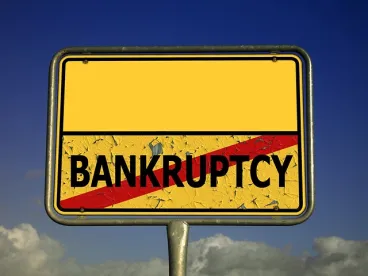A recent decision of the Slovak Courts suggest that if main proceedings have been opened in one member state and the debtor has assets in Slovakia, the insolvency practitioner in the main proceedings must act quickly and sell those assets before secondary proceedings are opened in Slovakia, otherwise he runs the risk of losing the assets to the secondary estate. Legal title to the assets must have passed to the buyer before the secondary proceedings are opened; it is not enough just for contracts to have been exchanged. If title has not passed when the secondary proceedings are opened, then the subsequently appointed Slovak trustee must ratify the transfer to avoid its validity being challenged in the future.
Timeline
 18 November 2008: Restructuring proceedings are opened in France for Key Plastics Slovakia, s.r.o. (“Key Plastics”).
18 November 2008: Restructuring proceedings are opened in France for Key Plastics Slovakia, s.r.o. (“Key Plastics”).
29 May 2009: Decision made to sell all Key Plastics’ assets to Plastique Du Val Loire (“Plastique”). We understand that the parties agreed a framework sale plan but did not actually sign a contract for sale.
1 June 2009: Plastique is granted the right to use Key Plastics’ assets and Key Plastics ceases trading.
17 May 2010: The French court in Alencon orders a court liquidation of Key Plastics and liquidation proceedings are opened in France.
24 May 2010: Secondary insolvency proceedings are commenced in Slovakia.
19 January 2011: The French liquidator contracts to sell all of Key Plastics assets to Bourbon Automotive Plastics Dolný Kubín s.r.o. (“Bourbon”) and the sale is duly registered in the local Cadaster Register.
One would think that nothing could deprive Bourbon of its ownership, but the reality is different.
The Slovak insolvency trustee included all movable and immovable assets located in Slovakia in Key Plastic’s secondary estate, including those assets which Bourbon purported to have acquired from the French liquidator. In attempting to defend its title, Bourbon argued that:
(i) Key Plastics’ assets had been sold to Plastique in 2009 as a going concern under the sale plan which should be recognized in Slovakia under Article 25(1) of the EC Insolvency Regulation 1346/2000 (“Insolvency Regulation”);
(ii) under Article 3(2) of the Insolvency Regulation, secondary proceedings could not be opened in Slovakia as there was no an “establishment” given that Key Plastics had ceased trading in 2009; and
(iii) despite the fact that sale contracts were signed and title was transferred in 2011, Bourbon had already acquired certain proprietary rights to the assets in 2009.
The Court and the Slovak trustee did not share this opinion. Both the first instance and appellate Courts concluded that once secondary proceedings are opened, the insolvency trustee in the main proceedings loses any right to and interest in the assets located in Slovakia and the secondary proceedings prevail over the main proceedings. Once secondary proceedings have been opened, only the Slovak trustee can sell the Slovak assets and sign respective agreements.
The Court admitted that Article 31 (3) of the Insolvency Regulation suggests that the trustee in the main proceedings should retain certain control over the secondary proceedings, however, as there is no express obligation on the secondary trustee to comply with the proposals and/or the instructions of the main trustee, the secondary trustee rules. As a result, the Court held that the sale contract signed by the French liquidator on 19 January 2011 was invalid.
They further argued that under Article 8 of the Insolvency Regulation, Slovak law and not French law determines the legal effects of the sale plan adopted in France and once secondary proceedings have been opened, Slovak law governs any disposal of Slovakian assets. In their opinion, Bourbon did not become the owner of the assets based on the decision of the French court on 29 May 2009. Ownership of the assets was transferred later on 19 January 2011, after the secondary proceedings had been opened.
Unfortunately, the Court did not consider the argument as to whether there was an “establishment” before opening the secondary proceedings. Nor did they properly examine the effects of the sale plan in 2009 under French law. Had they done so, they might have arrived at a different conclusion.
The decision leaves some unanswered questions. Was the purchase price paid by Bourbon to the French trustees distributed to the creditors in the French proceedings? We would expect so given that back in 2011 there was no Slovak court decision in place and nothing was wrong under French law. Bourbon is still registered as the owner of real estate but the Slovak trustee may now sell the assets again. His fees depend on how much he sells. Hopefully, the Slovak trustee will preserve the existing status quo but there may be issue with redistributing the purchase price again amongst all the creditors. Some Slovak creditors probably did not get anything in the French proceedings, which might actually be the motivation behind this case.
The decision creates uncertainty for the buyer, Bourbon, as well as Key Plastics’ creditors and we do not believe that this is how the Insolvency Regulation was meant to work. European / local insolvency law should not lead to such uncertainties which are bad for the restructuring business.
This is a complex case and the conclusion does not support the unified processing of cross border insolvency proceedings within the EU. The Insolvency Regulation is based on the principle that the insolvency practitioner of the country where the company’s centre of main interest is based should lead the process.
All this leads to the necessity for a more globalised approach in cross border cases and the need for communication between the insolvency practitioners of each country. We hope that the Recast EU Regulation, which comes into force in 2017, will help the insolvency practitioners of the various proceedings (main and secondary) to avoid this situation happening again.




 />i
/>i
